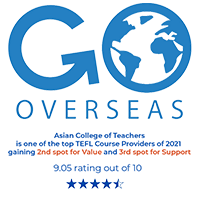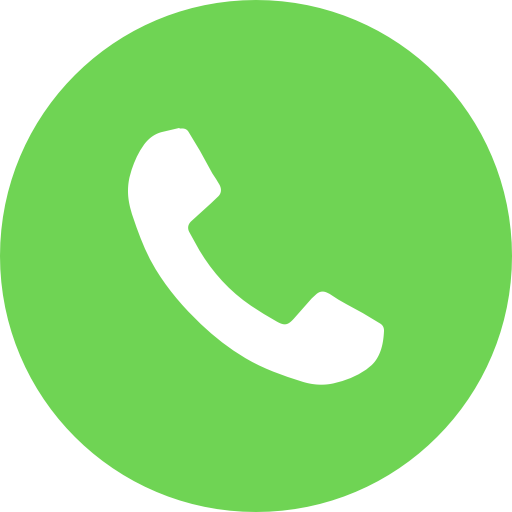TEFL Teachers Are Loving Hagwons!
Are you planning for teaching English abroad as a TEFL teacher? If yes, then South Korea can be a great destination for you. South Korea has one of the demanding job markets in hiring teachers from native or near-native English-speaking countries to teach their students.
A TEFL course online, a mandatory university degree like a BA/BS degree, and a strong command of the English language will help you fetch an EFL job in South Korea.
Based on the availability of the job market you can get a job in either public or private schools of South Korea. The private schools have a special name and they are called Hagwon. Hagwons are for-profit private schools in South Korea where you can get an excellent chance in teaching young learners. Teaching English in South Korea is astounding because of the culture, ambiance, living style, and so on.
Hagwons or Public schools?
Yes, this question is a bit confusing. Both public schools and private schools of South Korea are of a good standard but there are certain factors why people prefer teaching at hagwons in South Korea.
Before getting into the details, a superb fact about hagwons is that teachers are often at liberty to work on a flexible schedule, unlike public schools. An English teacher will earn around 1800-2300 USD in either of the schools, along with other perks but then there is a bigger picture.
As the term suggests, public schools are funded by the government, whereas private schools, hagwons are generally owned by business personalities. Apart from teaching young learners, in hagwons, you might have to teach Business English.
Both private and public schools can assure you with accommodations, plane fare reimbursement, paid vacation, etc. In Hagwons, the basic teaching curriculum, class size, and salary structure are different than that of public schools.
Hagwons recruit teachers throughout the whole year while public schools have only limited opportunities for TEFL teachers. As a result, the competition of getting a job in a private school in South Korea is lower than that of a public school. The public schools do not hire in bulk where hagwons often go for hiring more than one TEFL teacher.
These are the basic difference between private and public schools of South Korea.
Teaching Experience:
According to the teaching experience of TEFL teachers, they have mentioned some critical and integral differences between private and public schools of South Korea. Based on these factors, you can choose a school for teaching in South Korea.
First thing first, the salary structure is different in both scenarios. If you're planning to teach English in a public school then you can expect to receive 1600-1800 USD monthly. Now, this amount is for teachers who do not have prior teaching experience. An experienced teacher is supposed to earn 1800-2400 USD per month.
In the case of hagwons, the fresher TEFL teachers earn 1800-1900 USD whereas an experienced English teacher receives a monthly amount of 1900-2750 USD. By the numbers, there is not a huge difference between the salary structures of private and public schools but when it comes to the list of vacation, public schools ace the game.
Public schools in South Korea provide a vacation for 18 days and 13-15 national holidays. However, hagwons provide a vacation for 7-10 days only along with a similar number of national holidays.
Since public schools recruit teachers only in small numbers, at max 1-2 TEFL teachers can be found, though the number can grow a tad more in bigger public schools. While in hagwons, due to the all-year-round hiring process, 10-50 EFL teachers can be found in a school. This is an added advantage for newbies because they will be able to get along with more English-speaking teachers.
In a private school, the strength of the class is usually within 15 students but the number crosses beyond 30 in public schools. Working hours in public school is generally 22-24 hours a week whereas the timing varies a lot in private schools. In Hagwons, the teaching time may be 6-7 hours a day but according to the demand of the situation, you might have to work on weekends as well.
Application process:
This is another core and significant factor that might help to choose between a public school and a private school. Generally, a public school in South Korea hires teachers during spring and the fall. It takes around 3-4 months for the application process and is done through programs like EPIK, GEPIK, and SMOE. If you apply in February, you have to wait for around 7-8 months to get a response.
However, you do not have to face a case in the case of hagwons. Hiring continues throughout the whole year and you need 2-3 months for the application process.
South Korea, being one of the most popular TEFL countries in Southeast Asia, demands a solid pattern of interviews and a qualified English teacher. Usually, Hagwons prefer skype calling or a telephonic session for hiring teachers from their motherlands. Sometimes interviews are conducted via zoom sessions as well. You should be prepared with a teaching plan because the directors or any other interviewee can end up asking about your pattern of teaching.
A TEFL certification, BA/BS degree, valid passport having an expiry date not less than 18 months from the date of the planned starting day of teaching in South Korea, an updated resume, prior teaching experience certificates (if any), and a clean FBI criminal background check must be submitted as soon as you crack the jobs.
Where do you want to stay?
South Korea is a beautiful country. If you want to stay in an urban location that is a bit quiet or on the outskirts, then public schools will be best for you. Due to a scarcity of TEFL teachers in public schools, you may not be able to speak much with others because mainly native language speakers will dwell there. Whereas the urban and busy cities have lots of hagwons and if you want to enjoy the thrills of city life, definitely go for private schools. You will see that the cities are the hub of English-speaking people.
Thus, judge all these factors and choose wisely before selecting a school for teaching English in South Korea.
Don't forget to check this TEFL course on youtube and let us know what do you think about setting up a career teaching English abroad!




